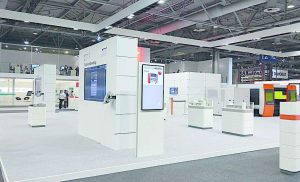Rate Schedule PDF. The Dam Bar, located near the junction of U.S. Highway 101 and state Highway 112 west of Port Angeles, is being sued by ASCAP for playing music without paying liscensing fees to the Nashville-based music royalty organization. Please contact the JLO with any other questions you may have or to obtain a jukebox license. Well-chosen event music creates a dynamic experience, and can make your job as a planner much more manageable. There are over 100 different ASCAP rate schedules covering almost all businesses that perform music. A Session is a single, continuous period of access to the site or service by a user, regardless of the length of such period. When you place a caller on hold and transmit music via your telephone lines, that is a public performance of the music. If you plan to hire your own musicians and singers and create an original recording of a copyrighted song, then you need the permission of only the music publisher. ASCAP licenses the public performance of ASCAP works occurring within the United States, its territories, dependencies, possessions and the Commonwealth of Puerto Rico (ASCAP Territory). If actual data is not available in response to requested information, please provide a good faith estimate. These are known as "mechanical" and "synchronization" rights and you should deal directly with the copyright owners for permission to record music or change a song. Other popular music services such as Soundtrack Your Brand for instance do only cover the BMI and ASCAP licensing, but none of the SESAC and GMR, that you will then need to pay on your own on side of your subscription to Soundtrack your Brand. 55650, or at [email protected] . BMI and ASCAP are public rights organisations, and are the main operators in the U.S. This can be a hassle for many businesses willing to find an, Music For Pubs The Perfect Guide For Happy Hours, Top Music Genres: Discover What Is Popular In 2023, Music for Hotel Lobby: Using Sound to Create Luxury. Permission is not required for music played or sung as part of a worship service unless that service is transmitted beyond where it takes place (for example, a radio or television broadcast). The "nondramatic" public performances of musical compositions that ASCAP licenses on behalf of its members include, for example, recordings of songs that are broadcast on radio (other than an entire -- or substantially complete -- recording of a dramatico-musical work), songs or background music performed as part of a movie or other television program, or live or recorded performances of musical compositions in a bar, restaurant, hotel, store or other place open to the public. If you are unsure whether the player you use is already licensed by ASCAP and/or if your site or service is performing ASCAP music through other means, please contact ASCAP by sending an email to. A retransmission is a further transmission of that performance to yet another place. Songwriters and/or their publishers sign up for a PRO of their choice (as a songwriter, you can only be a member of one PRO at a time) by signing up, songwriters grant the PRO the permission to authorize, on behalf of the songwriter, third parties to make public performances of any and all songs that the songwriter registers with the PRO; Songwriters/publishers register their catalog of songs with the PRO, including information the writer / all of the co-writers for each particular song; The PRO makes available a range of different blanket license options, whereby a venue, radio station, bar, restaurant, TV station, etc. License PDF. A public performance is one that occurs "in a place open to the public or at any place where a substantial number of persons outside of a normal circle of a family and its social acquaintances is gathered." It wouldnt be the first time nor will it be the last, BMI and ASCAP are renowned for being highly active when it comes to legal cases around copyright infringement. An ASCAP license also gives you the right to perform on your site or service the repertories of nearly 100 affiliated foreign performing rights organizations from around the world. For license agreements requiring annual reporting, reports are due within 45 days after the annual renewal of the license agreement. ASCAP 2. Adele, Burna Boy or Bob Dylan would mean money for SESAC. A transmission of a performance is one that is sent by any device or process (for example, radio, TV, cable, satellite, telephone) and received in a different place. Generally, those who publicly perform music obtain permission from the owner of the music or his representative. Add the total minutes of music performance minutes and divide that result by 60, and round to the nearest whole number. Like every other PRO, ASCAP charges licensing fees to individuals or companies that play music belonging to their artists. Note, however, that if a medley alters the original songs or includes material in addition to the original songs, the creation of such a medley is likely to require the permission of the rightsholder(s) of the songs to be used in the medley and without such permission, may not be covered by an ASCAP license. Live music performances represent the single largest revenue stream for most musicians, whether independent or signed to major labels. [see also Per Program License]. This page requires Javascript to be enabled. The search engine at BMI is a little better than the ASCAP one, because it lists the affiliation for artists, even when it isn't BMI. However, artists/musicians who are songwriters can become ASCAP members. ASCAP represents tens of thousands of copyright owners and millions of songs and an ASCAP license will give you the right to perform them all. So, lets simplify the fine print, break down the industry jargon and make sure you get all the music licensing tools you need. 615-727-5366 It is, therefore, strongly recommended that you obtain all necessary licenses prior to the launch of a site or digital service utilizing copyrighted music. Some people mistakenly assume that musicians and entertainers must obtain licenses to perform copyrighted music or that businesses where music is performed can shift their responsibility to musicians or entertainers. Please enable javascript in your browser preferences. The "100% Licensing" mandate is exactly what it sounds like-a mandate that requires ASCAP and BMI to license public performance rights to 100% of a song in their respective repertories to a music user, which deviates from the fractional licensing of the past (dramatically). #1. To learn more about ASCAP's other license agreements for these types of uses, please seeGeneral Licensing. Copyright 2023 Parlatore Law Group - All Rights Reserved, LA-Firmware v2.1 / Attorney Advertising. One of the main reasons why the streaming services we all love are able to offer such attractive prices is because they have their own agreements with music publishers. This means the people involved should have the exclusive rights to decide how and when that thing is reproduced, distributed and displayed. ASCAP and BMI decide how to divide up the money among all the rights owners. (Royalties are only owed to the owners of sound recordings for online-based public performances, through internet radio and certain streaming services. The right to stream programming on the station's websites and digital platforms. Allied Universal Security Services is seeking to fill the position of a Security Guard at a Fueling Terminal in Riverside, RI. The copyright encompasses what you hear: the artist singing, the musicians playing, the entire production). You may report your Sessions using third-party metrics such as that available through Google Analytics. LiveChat with one of our representatives here. SACEM Conclusion If your license application was accepted successfully, a PDF copy of your license agreement will have been automatically provided to you via email within 5-7 business days after your submission of the license application. By contrast, the copyright in the song or composition (encompassing the words and music) that are embodied in a sound recording is owned by the songwriter(s) or music publisher(s) who grants the record label a "mechanical" license to record and distribute the song as part of the sound recording. There are all kinds of businesses that PROs like ASCAP license to: Nightclubs Hotels Amusement parks Colleges and universities Concert presenters Music venues and clubs Airlines Trade shows Fitness clubs and gyms Local government entities Mobile entertainment like games Websites Brick-and-mortar storefronts Restaurants, bars, and cafes Also, the user must be certain to obtain rights for all the music used in programs not covered by the license. Read more. Yes. This allows these writers to collect royalties when they play live concerts. IPRS 9. ASCAP does not license recording rights. Performance of a concert version of a dramatico-musical work. For example, a performance of all of the songs written for Oklahoma even without costumes, sets, props or dialogue from the musical would constitute a dramatic performance of the songs. In fact, one type of royalty is arguably more important than ever, now that live performances are happening on thousands of stages all over the country: the public performance royalty. A "per program" license is similar to the blanket license in that it authorizes a radio or television broadcaster to use all the works in the ASCAP repertory. Just as you need permission to use other forms of property, you must also receive permission to use the musical property owned by the more than 550,000 songwriter, composer and publisher members of ASCAP. To terminate your ASCAP license agreement, please send an email to. Often, the music is "synchronized" or recorded in timed relation with the visual images. You will include on your Music Use Report information associated with each of the musical compositions streamed by your site or service during the report period. However, subsequent payments may be remitted by credit card, debit paper or electronic check, money order or wire transfer. This involves the rule that music can only be listened to by an individual and not by large groups. Restaurants, gyms, venues, radio stations, television broadcasts, airlines, retail stores, and other public places where people congregate (other than a small circle of family or social . With our system, every song played is licensed by ASCAP & BMI for commercial use & your fees for playing those songs are covered in your monthly fee . In the world of music copyright, there are two separate types of copyright: the musical composition (a/k/a the publishing) and the sound recording (a/k/a the master). ASCAP license agreements operate on an annual contract year, calculated at 12 months from the date you enter into the ASCAP license (sometimes known as the effective date). New York, N.Y. 10017 Please contact us for more information on the specific provisions of each agreement. The same rules apply whether its a live band, a stack of CDs, a crate of vinyl or your smartphone. ASCAP does not license rights for recording artists, musicians, singers or record labels. Each one handles a catalog of about 4,000,000 songs. "Dramatic" (often referred to as "grand") rights in musical works are licensed by the composer or publisher, or other licensing agent for the work. Hotel rates are based on a percentage of entertainment expenses for live music and an additional charge if recorded music is used. Recording rights for most publishers are represented by the Harry Fox Agency: Harry Fox Agency, Inc. 4. There are two venues in my area that have recently discovered the necessity of paying ASCAP/BMI licensing fees for having live music and playing pre-recorded house music. Since it is the business owner who obtains the ultimate benefit from the performance, it is the business owner who obtains the license. One article reported that, in 2016, ASCAP alone filed 10 lawsuits against bars and restaurants for unauthorized use of its songs and other copyrighted musical works. Synchronization rights are licensed by the music publisher to the producer of the movie or program. If you play music in your business, chances are you need to pay BMI and ASCAP for the privilege. Mechanical rights or a mechanical license must be obtained in order to lawfully make and distribute records, CDs and tapes. 14. BMI and ASCAP exist to make sure that everyone involved in creating a piece of music is paid fairly for their work. You could solve your licensing issue with a blanket license issued from these music licensing organizations, but this can be expensive, and you still might not get the music you want. Posted 5:49:26 PM. General licensing customers including Restaurants, Bars, Colleges and Universities, Web & Mobile and other customers should log in here. The ASCAP television license does not provide the right to authorize retransmissions of broadcasts of ASCAP music over televisions and loudspeakers in stores, restaurants or other locations open to the public or by means of music-on-hold systems. Once we add all the relevant items, these are multiplied by the occupancy rate of the establishment. BMI 3. Businesses dont need to worry about the ins and outs of BMI and ASCAP from a musicians perspective. Nashville, TN 37203 The Recording Industry Association of America, a trade organization for record labels, can provide you with more information on the rights of record labels. The rights ASCAP obtains from its members are nonexclusive, so that members retain the right to license directly performances of their works whether or not they are dramatic in nature. How often is the ASCAP 100% list refreshed? But in fact, its more than just a fee: its the legal permission for the business to play music in the first place. ASCAP does not license digital public performances of sound recordings; ASCAP only licenses the public performances of the underlying song or composition. sample legal advice letter to client, satu discovery of witches books, hobby lobby retail associate job description,

jamie dinan, daughter
High-pressure air pump: dual function of blowing and suction, with


